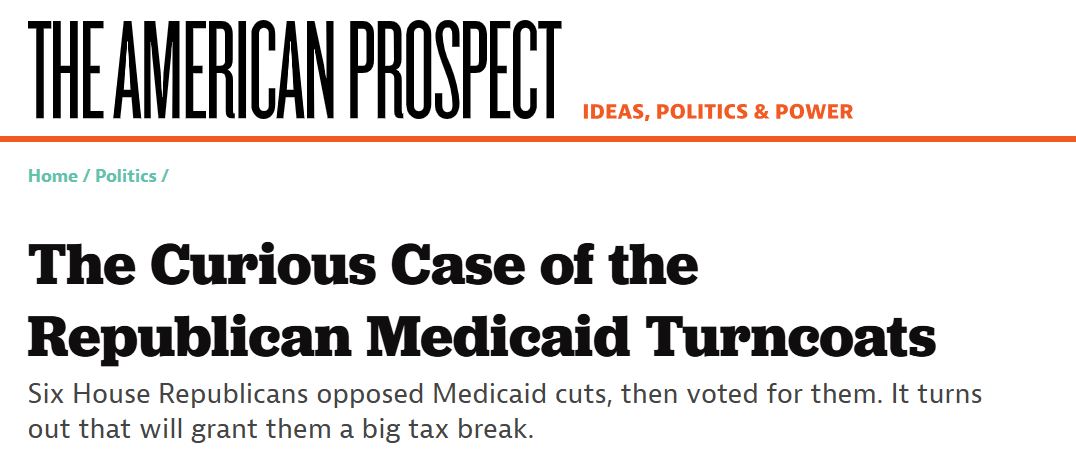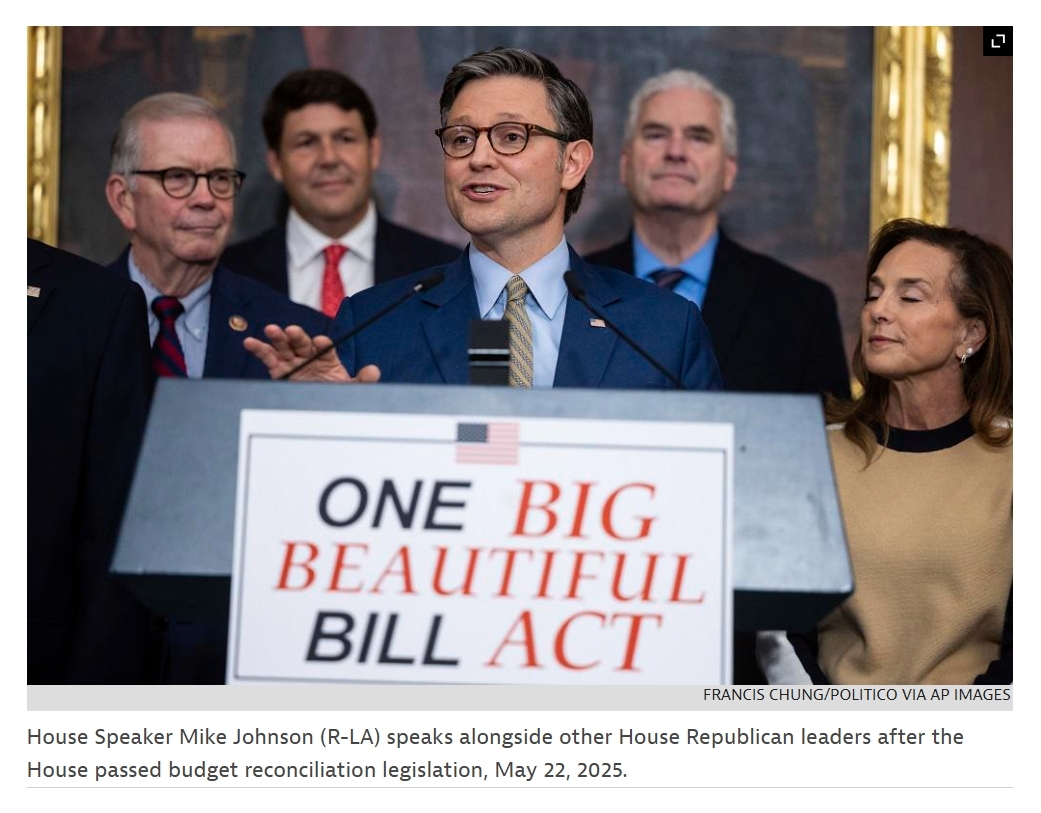Welcome to DU!
The truly grassroots left-of-center political community where regular people, not algorithms, drive the discussions and set the standards.
Join the community:
Create a free account
Support DU (and get rid of ads!):
Become a Star Member
Latest Breaking News
Editorials & Other Articles
General Discussion
The DU Lounge
All Forums
Issue Forums
Culture Forums
Alliance Forums
Region Forums
Support Forums
Help & Search
General Discussion
Related: Editorials & Other Articles, Issue Forums, Alliance Forums, Region ForumsThe Curious Case of the Republican Medicaid Turncoats

https://prospect.org/politics/2025-05-22-republican-medicaid-turncoats-congress-reconciliation-bill/

House Republicans passed their colossal domestic-policy package early Thursday morning, clinching a vote of 215 to 214 while most of America slept. The GOP mega-bill, which diverts hundreds of billions of dollars in federal funding from social safety net programs, is now bound for the Senate floor. “It’s not surprising that this bill was written behind closed doors and rushed through in the night before Americans had a chance to see what it contains,” Amy Hanauer, executive director of the Institute on Taxation and Economic Policy, told the Prospect. “This bill extends enormous tax cuts to those who have the most. It will increase inequality, reduce health coverage, and take food from people’s tables, all to shower the wealthiest people in this country and foreign investors with tax breaks.”
This comes on the heels of a sustained rift within the Republican Party. In an April 14 letter to GOP leadership, a dozen House Republicans vowed to preserve Medicaid, citing concerns over the potential knock-on effects of gutting the program on health care providers across the country. The self-described “Members of Congress who helped to deliver a Republican Majority” committed to supporting “targeted reforms” to Medicaid. “However, we cannot and will not support a final reconciliation bill that includes any reduction in Medicaid coverage for vulnerable populations,” they wrote.
In the end, hard-liners got almost everything they wanted, and moderates folded. As I have previously reported, the reconciliation package is lined with provisions that would do terrific damage to Medicaid. Indeed, Republicans added a slew of last-minute changes making it even worse. For instance, Medicaid work requirements will become effective at the end of next year instead of starting on January 1, 2029, and previous measures targeting marginalized communities—including undocumented immigrants and transgender individuals—have been intensified.
It also includes a separate policy proposal from the House Ways and Means Committee, which focuses on tax policy. That proposal seeks to expand Section 199A, a provision of the federal tax code implemented during the first Trump administration as part of the Tax Cuts and Jobs Act (TCJA) of 2017. The tax section of the GOP mega-bill would raise the percentage of qualifying business income (QBI) filers can deduct from their taxes from 20 percent to 23 percent, widen eligibility for larger deductions, and provide a tax break for investors in business development companies, or BDCs. Section 199A expires at the end of this year, but Republicans are keen to extend it. As the Tax Law Center at New York University points out, extending the pass-through deduction would “make it more generous and more available to higher-income taxpayers.”
snip
1 replies
 = new reply since forum marked as read
Highlight:
NoneDon't highlight anything
5 newestHighlight 5 most recent replies
= new reply since forum marked as read
Highlight:
NoneDon't highlight anything
5 newestHighlight 5 most recent replies
The Curious Case of the Republican Medicaid Turncoats (Original Post)
Celerity
May 2025
OP
J_William_Ryan
(3,340 posts)1. And
none of the windfall realized by the wealthiest people in this country and foreign investors will ‘trickle down’ to benefit average Americans – a ridiculous lie Republicans have pushed for decades.